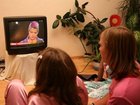Aspirin and other anti-inflammatory drugs taken for pain relief may reduce the effectiveness of anti-depressants such as Prozac, a U.S. study suggested on Monday.
As many as one in five people are affected by major depressive disorders but about one-third of them are resistant to anti-depressant drugs, said the study published in the Proceedings of the National Academy of Sciences.
 Full Story
Full Story
Europe, especially France, has been hit by a major outbreak of measles, which the U.N. health agency is blaming on the failure to vaccinate all children.
The World Health Organization said Thursday that France had 4,937 reported cases of measles between January and March — compared with 5,090 cases during all of 2010. In all, more than 6,500 cases have been reported in 33 European nations.
 Full Story
Full Story
High levels of pesticide exposure in pregnant women have been linked to lower IQs in their children, according to three separate U.S studies released on Thursday.
Two studies were done in New York City and a third was in Salinas, a farming area of northern California. All spanned nearly a decade, tracking levels of pesticide in expectant mothers and testing nearly 1,000 children up to age nine.
 Full Story
Full Story
Kidney failure is a main complication of diabetes, but a lab study on mice showed that a high-fat, low-carbohydrate diet could reverse that in eight weeks, U.S. researchers said Wednesday.
The extreme food plan is known as a ketogenic diet and is often used to treat children with drug-resistant epilepsy. It starves the body of carbs and sugars, thereby tricking the body into burning fat for fuel instead of glucose.
 Full Story
Full Story
Children who spend too much time watching television increase the risk of heart disease, high blood pressure and diabetes in later life, an Australian study showed Wednesday.
In what was declared world-first research, the University of Sydney found that six- to seven-year-olds who spent the most time watching television had narrower arteries in the back of their eyes.
 Full Story
Full Story
U.S. researchers have recreated the process by which ovarian cancer forms in the lab, providing solid evidence that the tumors start in the fallopian tubes, not the ovaries, a study said Monday.
The finding could provide clues on how to attack ovarian cancer, which often causes no early symptoms and by the time it is found has spread so much that the tumors are impossible to stop.
 Full Story
Full Story
An expectant mother's diet during pregnancy can alter her baby's DNA in the womb, increasing its risk of obesity, heart disease and diabetes in later life, an international study has found.
Researchers said the study provided the first scientific evidence linking pregnant women's diet to childhood obesity, with major implications for public health.
 Full Story
Full Story
Russian President Dmitry Medvedev on Monday called for drug testing in schools, warning that narcotics abuse was now such a major problem that it was weighing down the economy.
Speaking at a government meeting in the Siberian city of Irkutsk, identified by officials as a particular trouble spot for abuse, Medvedev said that no fewer than 2.5 million Russians were drug addicts.
 Full Story
Full Story
Indian housewife Sujata Budarapu was shocked when she was told that her two sons were on the verge of developing Type 2 diabetes.
"It had never even occurred to me that this could happen. I had heard that outside India this happens to other people's kids but I never thought it would happen to my own," the 38-year-old from Mumbai told Agence France Presse.
 Full Story
Full Story
People with Alzheimer's disease may start experiencing shrinking of parts of the brain as many as 10 years before the degenerative condition is diagnosed, a U.S. study suggested on Wednesday.
While the results are still preliminary, scientists said the findings could one day provide a way to identify by MRI scan which individuals are most likely to develop the disease, which can run in families and has no cure.
 Full Story
Full Story



